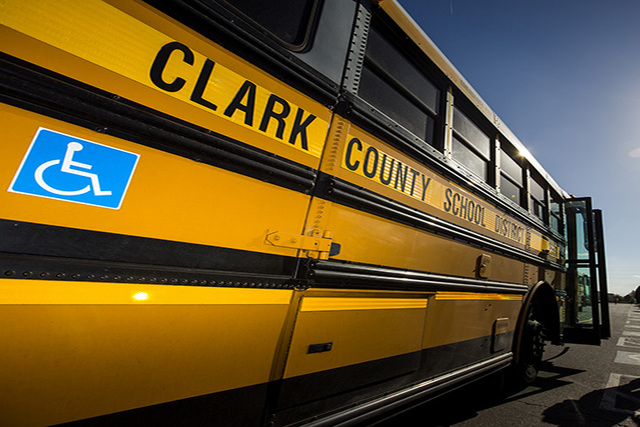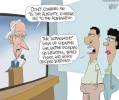CCSD to offer online sex education classes

Sex education will be available online to any Clark County high school student, according to a School Board approval of two new courses on Thursday.
But advancing into online courses won’t mean changes to the district’s “abstinence-based” sex education, which emphasizes refusal above all else in avoiding sexually transmitted diseases and pregnancy, which irked some parents on the district’s advisory committee for sex education curriculum.
The committee was split 4-4 in May on whether to recommend that the School Board adopt Thursday’s main online curriculum, Apex Learning’s Skills for Health Core. The materials focus on ways to abstain, offering three methods: “Avoid, delay and refuse.”
“If we are going to invest in an online sex ed course, there must be something better than this,” said committee member Amey Esparza, calling the course “incomplete” for not explaining the options available to a girl who becomes pregnant, such as the morning-after pill and types of abortion. “Many issues are left out entirely.”
The omitted topics include gender identity, rape and homosexuality.
The curriculum, however, is merely tailored to follow district policy, said Mary Pike, director of K-12 science and health for the Clark County School District.
“District policy is a whole other conversation,” said Pike, noting that the district has used an abstinence-based model since 2004. Before that, Clark County schools taught abstinence-only sex education.
To again change policy and include those topics around gender identity and intimacy, the School Board would need to change its Sex Education Operational Guide. It’s considering just that, possibly moving to a “comprehensive” sex education curriculum, which could put less emphasis on abstinence and teach more about “safe sex.”
Although the School Board unanimously approved the online courses Thursday, the members don’t all stand behind abstinence-based sex education. In fact, some have said they want to revisit it.
“It’s 2013. Frankly, if we think 16-, 17- and 18-year-olds aren’t going to think about having sex and abstinence-based is going to work — why is it not comprehensive?” board member Carolyn Edwards said in December when the board considered changing its sex education policies, starting a process still underway to gain community input before making any changes.
A little less than half of Nevada’s high school students reported having had sexual intercourse, according to the 2013 Nevada Youth Risk Behavior Survey. About 56 percent of the sexually active youth reported using a condom. Nevada has a teen birth rate of 33 per 1,000 females, higher than the national average of 29 per 1,000, according to the U.S. Centers for Disease Control and Prevention.
“The comprehensive question is a very big one,” Edwards said.
Board member Chris Garvey said she would support comprehensive sex education. “It doesn’t bother me.”
Like the Sex Education Advisory Committee though, the School Board is divided. Some board members seem undecided.
“I know this is a sensitive issue,” board member Deanna Wright said. “I don’t want to take away a parent’s right to educate their child with their values and their belief system.”
Board member Patrice Tew has been in adamant support of keeping courses abstinence-based, arguing that it’s already “inclusive” of everything that needs to be taught, such as contraceptive, and done so in a “responsible way.”
Contact Trevon Milliard at tmilliard@reviewjournal.com or 702-383-0279. Find him on Twitter: @TrevonMilliard.


















